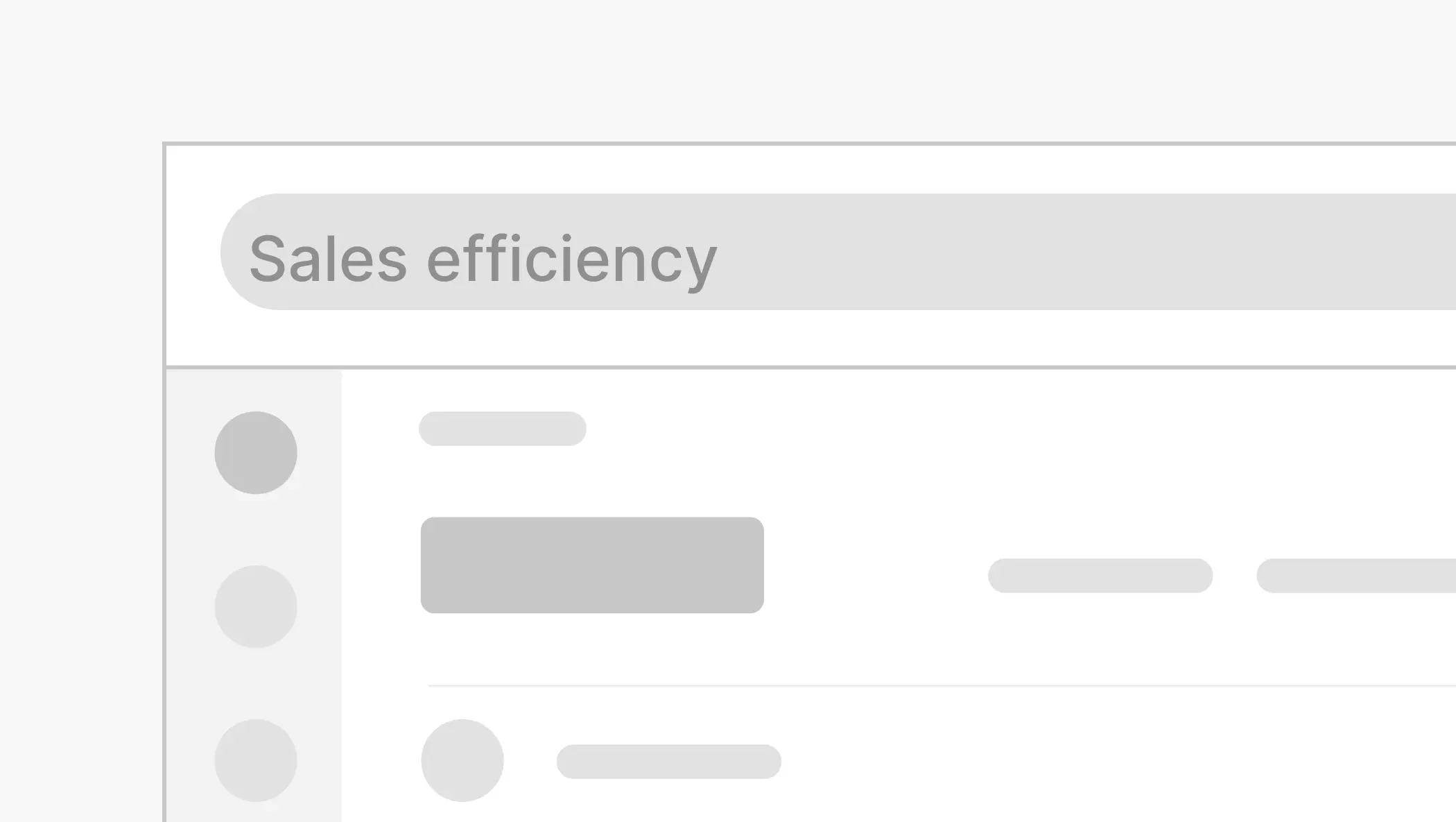10 best CRM solutions for event management in 2025

Discover folk - the CRM for people-powered businesses

Event management is demanding. You have to keep up with ticket sales, manage multiple business relationships with senior stakeholders, and have excellent communication which requires consistency in your messaging. Without the right systems in your tech stack, it is easy to feel overwhelmed.
Fortunately, the right CRM solutions help event organizers streamline attendee management, automate communication, and track leads, all while providing the insights needed to make data-driven decisions. With so many options available, finding the best CRM for your needs can feel overwhelming.
In this blog, we’ll explore the ten best CRM solutions for event management in 2025, including folk, HubSpot, Salesforce, and Pipedrive. Each platform brings unique strengths to the table, so you’ll be able to find the right fit for your events.
What to look for in a CRM for event management
Event management is hard. From coordinating attendees, to managing communication, tracking leads and following up. Whether you’re organizing a small networking event or a large-scale conference, the complexity of these tasks can quickly become overwhelming. This is where a CRM tailored to event management becomes invaluable.
Fortunately, by using a CRM, event organizers can ensure seamless attendee communication, manage sponsorships more effectively, and track engagement throughout the event lifecycle. From initial outreach to post-event follow-ups.
The right CRM should simplify processes, provide actionable insights, and scale as your event portfolio grows. Here are the key features to look for in a CRM for event management:
- Attendee management: Tools to track registrations, check-ins, and attendee preferences to ensure smooth event execution.
- Communication automation: Email campaigns and personalized reminders to engage attendees before, during, and after the event.
- Integration capabilities: Compatibility with platforms like Zoom, Eventbrite, or Google Workspace for a unified workflow.
- Analytics and reporting: Insights to measure event success and inform future strategies.
- Scalability: The ability to adapt to your event needs, whether you’re managing intimate workshops or large-scale conferences.
The 10 best CRM solutions for event management in 2025
1. folk CRM
Best for building relationships and streamlined operations across sales and marketing
folk CRM stands out for its simplicity and efficiency, making it an excellent choice for small teams.
Its contact management and automation tools are perfect for tracking leads, managing attendee communication, and organizing event contacts. The user-friendly interface allows event planners to get started quickly, avoiding the steep learning curve of more complex platforms. If you use social media as part of your social sales strategy, folk is unique in its ability to help you capture leads from your posts and send them directly to your CRM. So you’ll never have to manually enter them in a spreadsheet again.
Why it’s great for events:
- Intuitive design for effortless contact management.
- Automation tools for follow-ups and reminders.
- Perfect for small-scale events with limited resources.
2. HubSpot CRM
Best for marketing-focused events
HubSpot CRM integrates marketing, sales, and customer service tools, making it ideal for event organizers who want to align events with broader marketing campaigns. Features like email marketing, landing pages, and lead tracking help drive attendance and engagement, while its analytics provide insights into campaign performance.
Why it’s great for events:
- Excellent marketing automation tools.
- Integration with landing pages and forms for event promotion.
- Scalable options for growing teams.
3. Salesforce
Best for large-scale event management
Salesforce is a powerful CRM for managing large-scale events. Its customizable platform can handle complex workflows, attendee tracking, and integration with third-party tools. Salesforce is particularly well-suited for enterprises with multiple events and a need for comprehensive reporting.
Why it’s great for events:
- Highly customizable for complex events.
- Integration with other enterprise tools.
- Robust analytics for event performance tracking.
4. Pipedrive
Best for event sponsorship and partnerships
Pipedrive’s sales-focused features make it an excellent choice for managing event sponsorships and partnerships. Its visual pipelines allow teams to track deals, follow-ups, and partnership opportunities with ease.
Why it’s great for events:
- Easy-to-use deal tracking and pipeline management.
- Automation tools for sponsorship workflows.
- Affordable and accessible for smaller teams.
5. Eventbrite Organizer app
While it is not a traditional CRM, Eventbrite’s organizer app focuses on attendee management and ticketing. It’s ideal for event planners already using Eventbrite for registrations, offering seamless integration and reporting tools to track ticket sales and attendee engagement. Its main drawback as a non-traditional CRM is the lack of dashboards for pre and post-event follow-ups you need to do as it is purely event-focussed.
Why it’s great for events:
- Specialized for ticketing and attendee tracking.
- Integration with Eventbrite’s ecosystem.
- Straightforward reporting for event organizers.
6. Zoho CRM
Best for customization
Zoho CRM offers extensive customization, making it a strong choice for businesses with unique event workflows. It supports multi-channel communication, attendee segmentation, and workflow automation, but its complexity may require more time for setup and training.
Why it’s great for events
- Highly customizable for specific event needs.
- Integrates with email campaigns and attendee tracking.
- Scalable for growing organizations.
7. Monday.com CRM
Best for event project management
Monday.com combines task management with CRM features, providing a visual way to track event timelines, assignments, and attendee lists. Its intuitive boards make it ideal for teams needing a project-focused approach to event planning. You can also use it as a lightweight CRM. The only drawback is its lack of traditional CRM features like contact enrichment, and management.
Why it’s great for events:
- Visual boards for easy tracking.
- Combines project management and CRM functionality.
- Ideal for collaborative teams managing multiple events.
8. Microsoft Dynamics 365
Best for complex enterprise solutions
Microsoft Dynamics 365 is a comprehensive CRM that integrates seamlessly with other Microsoft tools, such as Outlook and Teams. Its advanced features are perfect for large organizations managing multiple, complex events.
Why it’s great for events:
- Deep integration with Microsoft’s ecosystem.
- Scalable for enterprise-level events.
- Advanced tools for attendee management and post-event analysis.
9. ActiveCampaign CRM
Best for automation-driven events
ActiveCampaign focuses on automation, offering tools to build workflows for pre- and post-event communication. It’s ideal for events that rely heavily on email marketing and attendee engagement.
Why it’s great:
- Powerful email automation tools.
- Easy-to-build workflows for attendee communication.
- Affordable for smaller teams.
10. Copper CRM
Best for integration with Google Workspace
Copper CRM is perfect for teams using Google Workspace. It streamlines attendee tracking, communication, and collaboration directly through Gmail, Calendar, and other Google tools.
Why it’s great:
- Seamless integration with Google Workspace.
- User-friendly design for smaller teams.
- Effective for managing attendee communication.
How to choose the best CRM for your event management needs
Feeling overwhelmed by the number of options? You're not alone. Selecting the right CRM comes down to understanding your event requirements and budget. Here are some tips to help you decide:
- Consider your event scale: Small teams may benefit from streamlined platforms like folk or Copper, while enterprises may prefer Salesforce or Microsoft Dynamics.
- Prioritize features: Look for attendee management, email automation, and reporting tools tailored to your event goals.
- Evaluate ease of use: Simpler CRMs like folk and Pipedrive reduce onboarding time, while more complex systems like Zoho may require additional training.
- Think about integration: Choose a CRM that connects seamlessly with your existing tools, such as event platforms or marketing software.
For most small to medium-sized teams, folk CRM offers the perfect balance of functionality, simplicity, and affordability.
Conclusion
The right CRM can transform how you plan, execute, and measure your events. Whether you’re managing a small workshop or a large conference, options like folk, HubSpot, Salesforce, and others provide tools to streamline operations and enhance attendee engagement. For an intuitive, efficient, and budget-friendly solution, folk CRM stands out as the ideal choice for small teams. Try folk CRM today and see how it can simplify your event management process.
Ready to use folk?
Discover folk CRM - Like the sales assistant your team never had


.webp)



